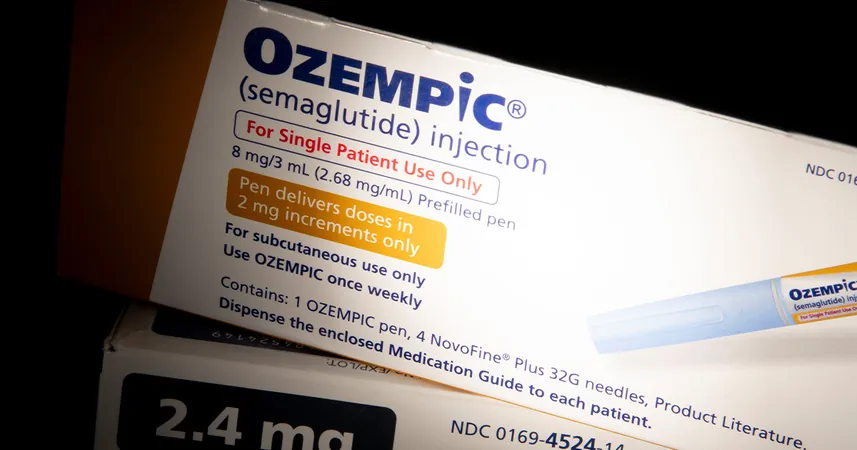
Doctors Raise Alarm Over Testing Ozempic-Style Injections on Young Children
2024-09-15
Concerns Over Testing GLP-1 Medications on Children
In an alarming new study, concerns are mounting as pharmaceutical giant Novo Nordisk plans to test weight loss injectables like Ozempic on children as young as six. While childhood obesity poses serious health risks, the potential use of GLP-1 medications—such as liraglutide—is sparking heated discussions among medical professionals.
Novo Nordisk's Findings
Novo Nordisk, known for its popular weight loss drugs Ozempic and Wegovy, has released findings indicating that liraglutide could help reduce body mass index (BMI) in children aged 6 to 12. This information was highlighted in a recent publication in the New England Journal of Medicine. The study involved 82 children who were administered daily injections of either liraglutide or a placebo for about 13 months, alongside lifestyle coaching sessions with their parents.
Study Results and Expert Opinions
The results showed that children receiving liraglutide experienced an average BMI reduction of 5.8%, in contrast to a mere 1.6% reduction in those receiving the placebo. While these statistics may seem promising, experts are urging caution.
Dr. Roy Kim, a pediatric endocrinologist at Cleveland Clinic, pointed out the unknowns associated with the long-term safety and effectiveness of these medications in children. 'While the medicine was well tolerated, there are concerns about potential adverse effects, including pancreatic issues, thyroid cancer risks, and complications affecting bone health,' Kim stated in an interview with NBC.
Additionally, Dr. Sarah Armstrong from Duke University raised concerns regarding children's developmental health. 'If we suppress their appetite while they’re still growing, what repercussions might that have? Could it lead to delayed puberty, stunted growth, or even disordered eating patterns?' Armstrong questioned, highlighting the critical developmental changes occurring during childhood.
The Ethical Implications
Despite these valid concerns, the results of this small scale trial cannot be ignored, especially for children struggling with severe obesity. Experts caution that while addressing early-life obesity is essential, it is equally important to scrutinize the long-term implications of administering such powerful medications to a vulnerable population.
Currently, no GLP-1 drug has received FDA approval for children under the age of 12. As the agency considers regulations, it will be crucial for future studies to remain unbiased and independent of pharmaceutical funding to ensure the safety and efficacy of these treatments for children.
As the world grapples with an obesity crisis, the ethical implications of drugging young children for weight management continue to rise, pushing medical professionals to voice their concerns and call for comprehensive research before these treatments become mainstream.





 Brasil (PT)
Brasil (PT)
 Canada (EN)
Canada (EN)
 Chile (ES)
Chile (ES)
 España (ES)
España (ES)
 France (FR)
France (FR)
 Hong Kong (EN)
Hong Kong (EN)
 Italia (IT)
Italia (IT)
 日本 (JA)
日本 (JA)
 Magyarország (HU)
Magyarország (HU)
 Norge (NO)
Norge (NO)
 Polska (PL)
Polska (PL)
 Schweiz (DE)
Schweiz (DE)
 Singapore (EN)
Singapore (EN)
 Sverige (SV)
Sverige (SV)
 Suomi (FI)
Suomi (FI)
 Türkiye (TR)
Türkiye (TR)